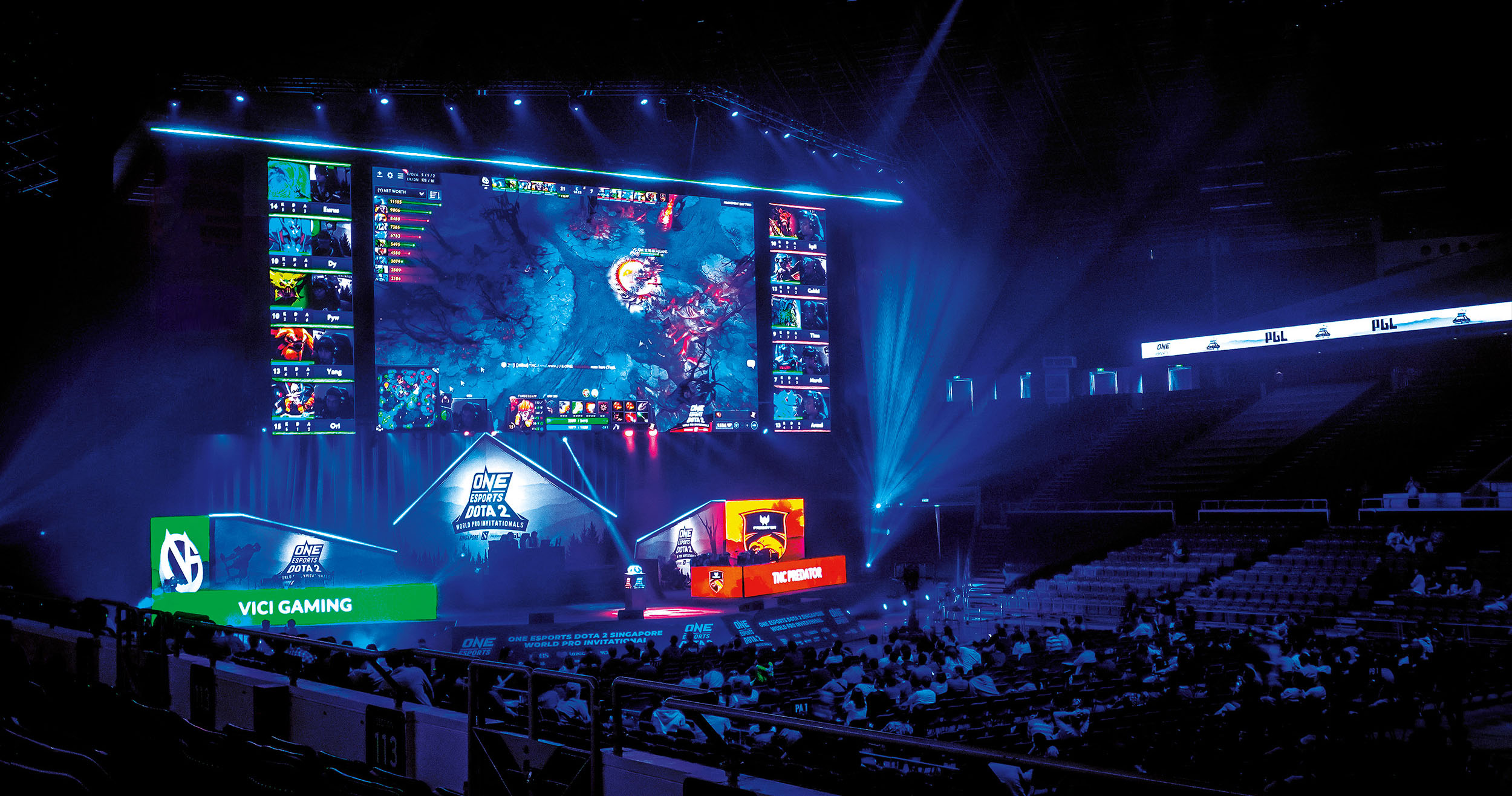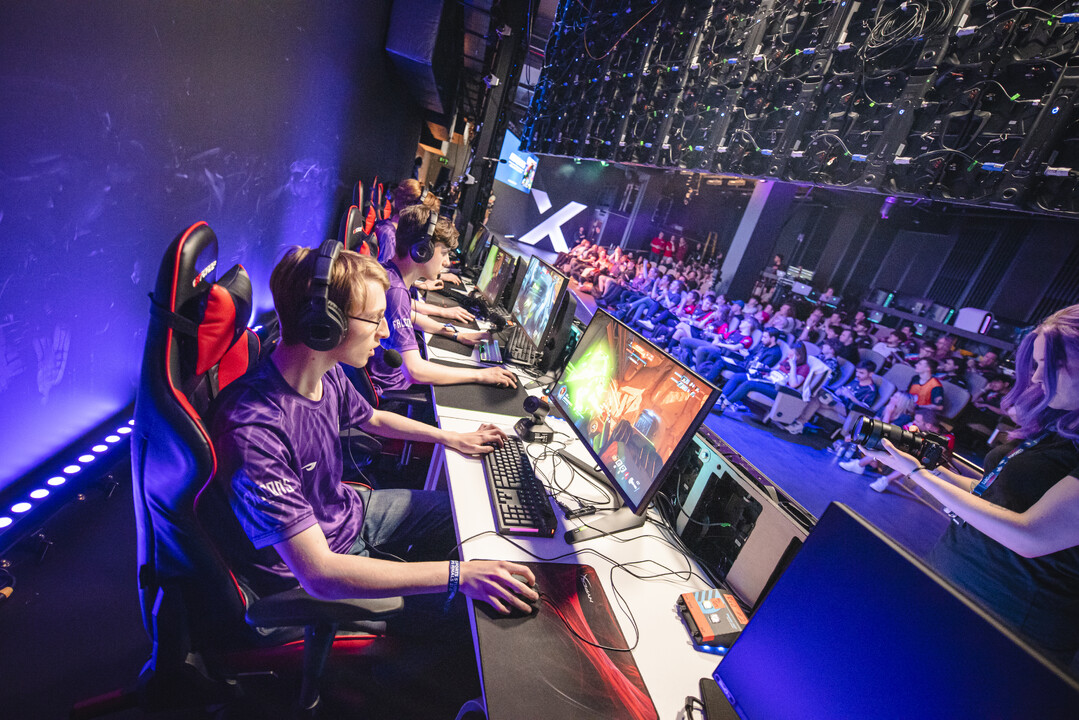E-sports, or electronic sports, is a form of competitive video gaming that has taken the world by storm in recent years. It involves players competing against each other in various popular video games, often for large cash prizes and fame. What started as a small niche community has now grown into a multi-million-dollar industry with a massive global following.
In this article, we will delve into the world of e-sports and explore its origins, growth, and impact on the gaming industry and society as a whole. We will also discuss the different aspects and subcultures within electronic sports, how it has become a viable career option for many, and the challenges and controversies it has faced along the way.
Introduction to E-Sports
E-sports, short for electronic sports, can be defined as organized, competitive video gaming that involves professional players and teams competing against each other in various popular video games. It can be traced back to the early 1970s, with the first known e-sports tournament being held at Stanford University for the game Spacewar!!. However, it wasn’t until the late 1990s and early 2000s that electronic sports began to gain recognition and popularity.
The evolution of technology has played a significant role in the growth of e-sports. With the rise of the internet and advancements in gaming hardware and software, video games have become more accessible and sophisticated, creating a global platform for competitive gaming. This has led to the emergence of professional electronic sports tournaments, sponsorships, and investments, resulting in a massive growth in its audience and revenue.

E-sports, or electronic sports, refer to structured, competitive video gaming where professional players and teams engage in matches across a variety of popular video games
E-sports has often been compared to traditional sports, with some even considering it as a new form of sport. While there are similarities between the two, such as the competitiveness and skill required to excel, there are also notable differences. The main difference is the physical aspect, as e-sports primarily involves mental and strategic prowess rather than physical abilities. Nonetheless, electronic sports has gained acceptance and recognition as a legitimate form of entertainment and competition.
The Growth of E-Sports
The growth of electronic sports can be divided into four main eras: grassroots, corporate, modern, and mainstream. The grassroots era in the 1970s was marked by small-scale competitions among friends and enthusiasts. In the corporate era of the 1980s and 1990s, companies began organizing tournaments and offering cash prizes, leading to the emergence of professional players and teams.
The modern era of e-sports began in the late 1990s with the establishment of the Korean e-Sports Association and the introduction of the World Cyber Games (WCG) in 2000. These events brought together players from different countries, marking the start of international electronic sports competitions. The mainstream era began in the mid-2000s with the launch of popular streaming platforms such as Twitch and YouTube, playing sports more accessible to a global audience.

The evolution of e-sports can be categorized into four distinct periods: grassroots, corporate, contemporary, and mainstream
Emergence of Professional Tournaments
The early 2000s saw the emergence of professional e-sports tournaments, attracting players and teams from around the world. The WCG, founded by South Korean game publisher GameHI, was one of the first major international tournaments, offering cash prizes and exposure to players from various countries. Other notable tournaments include the Electronic Sports World Cup (ESWC), Major League Gaming (MLG), and the Intel Extreme Masters (IEM).
These tournaments brought together professional players and teams, showcasing their skills and creating a competitive environment. As the popularity of e-sports grew, the prize pools for these tournaments also increased significantly. For example, the prize pool for the 2019 DOTA 2 International tournament was over $34 million, making it one of the most lucrative electronic sports events to date.
Sponsorships and Investments
With the rise of professional e-sports tournaments, companies began to invest in the industry, resulting in significant growth and opportunities for players and teams. In 2013, Amazon acquired Twitch, a popular streaming platform for gamers, for nearly $1 billion, further solidifying the integration of electronic sports into the mainstream entertainment industry. Companies like Red Bull, Coca-Cola, and Intel have also sponsored and partnered with e-sports events and teams, providing financial support and exposure for the players.
Furthermore, e-sports has attracted investments from traditional sports organizations, such as the National Basketball Association (NBA) and Major League Soccer (MLS). These investments have helped legitimize electronic sports and garner more attention from mainstream media and audiences.
Global Reach and Popularity
Electronic sports have become a global phenomenon, with millions of viewers tuning in to watch tournaments and competitions online or in-person. In 2020, the global audience for e-sports is estimated to be around 495 million people, and this number is projected to reach 646 million by 2023. This has played sports a lucrative industry, with an estimated revenue of $1.1 billion in 2020, expected to surpass $1.6 billion by 2023.
The popularity of electronic sports is not limited to a specific region or demographic. It has a diverse audience, with players and fans from different countries and backgrounds. The top regions for e-sports viewership include Asia, North America, and Europe, with China being the largest market. This global reach has also attracted investments from companies and organizations worldwide, contributing to the growth of the industry.
Subcultures within E-Sports
E-sports has a diverse and ever-expanding community, with various subcultures and niches within it. These subcultures are defined by the types of games played, the demographics of players and fans, and the platforms used for viewing and participation.
Different Types of Games
E-sports encompasses a wide range of video games, including first-person shooters, multiplayer online battle arenas (MOBAs), fighting games, sports simulations, and strategy games. Each genre has its own dedicated fan base and professional players, with tournaments and leagues organized for each type of game.
Some popular e-sports games include:
- League of Legends (LOL)
- Counter-Strike: Global Offensive (CS: GO)
- DOTA 2
- Overwatch
- Fortnite
- Street Fighter V
Each of these games has its own unique gameplay mechanics and strategies, attracting players and fans with different preferences and skill sets.
Diversity and Inclusivity
One of the significant advantages of electronic sports is its inclusivity and diversity, allowing players from all backgrounds to participate and compete. Unlike traditional sports, where physical abilities may limit participation, e-sports primarily relies on mental skills and strategy, providing equal opportunities for all players.
Furthermore, electronic sports have seen a rise in the representation of women and LGBTQ+ players, breaking gender stereotypes and promoting inclusivity. However, there is still a need for more diversity within the industry, with efforts being made to encourage and support underrepresented groups in e-sports.
Role of Streaming Platforms
Streaming platforms, such as Twitch and YouTube, have played a crucial role in the growth and popularity of electronic sports. These platforms allow players to live stream their gameplay and interact with their audience in real-time, creating a more personal and immersive experience for viewers. It also provides a platform for new and aspiring players to showcase their skills and build a following.
Apart from streaming gameplay, these platforms also host electronic sports tournaments, allowing fans to watch and support their favorite teams and players. This has made it easier for e-sports to reach a wider audience, regardless of geographical location or access to traditional media outlets.
E-Sports as a Career
E-sports has become a viable career option for many, with professional players earning salaries, sponsorships, and prize money. The top players can earn millions of dollars per year through tournament winnings, endorsements, and streaming revenues.

Competitive gaming, or e-sports, has emerged as a viable career path for numerous individuals, enabling professional players to earn income through salaries, sponsorships, and winnings
Rise of Professional Players
There has been a significant increase in the number of professional players in electronic sports, with many making a successful career out of competitive gaming. Many players start young, honing their skills in various games and competing in local and online tournaments to gain recognition. As electronic sports has grown, so has the demand for skilled players, resulting in more job opportunities within the industry.
The popularity of electronic sports has also attracted athletes from traditional sports, such as basketball and soccer, who have transitioned into e-sports and found success in their new career. This has further legitimized electronic sports as a valid and respected profession.
Job Opportunities within E-Sports
Apart from professional players, there are also various job opportunities within the e-sports industry. These include shout casters (commentators), event organizers, coaches, analysts, social media managers, and more. With the growth of electronic sports, these roles have become more specialized and in-demand, offering career options for individuals who may not be skilled at playing but are passionate about gaming and e-sports.
Furthermore, e-sports has also created jobs in related industries, such as marketing, game development, and technology, providing additional career paths for those interested in the field.
Challenges and Rewards of Pursuing a Career in E-Sports
While the idea of making a living by playing video games may sound appealing to many, pursuing a career in electronic sports comes with its own set of challenges and rewards. The road to becoming a professional player is filled with hard work, dedication, and sacrifices. Players often spend hours practicing and competing in tournaments, which can take a toll on their physical and mental health.
Moreover, the competitive nature of e-sports means that only a small percentage of players make it to the top and earn a significant income. For the rest, it can be a challenging and unpredictable career path. However, for those who are passionate and dedicated, the rewards can be immense, both financially and personally. Apart from the potential for high earnings, players also get to travel, meet new people, and compete in front of a global audience.
Controversies and Challenges
Despite its exponential growth and popularity, e-sports has faced its fair share of controversies and challenges. One of the main concerns surrounding electronic sports is addiction and the potential adverse effects of excessive gaming on mental and physical health.
Concerns over Addiction and Health Issues
As with any form of entertainment, there is a risk of addiction associated with electronic sports. With the constant competition and pressure to perform, players may become addicted to gaming, leading to a decline in their mental and physical well-being. There have been reports of professional players suffering from burnout and injuries due to excessive gaming.
Moreover, there have been concerns about the impact of screen time and sedentary lifestyles on young players, with some countries even implementing regulations and restrictions on e-sports for minors.
Cheating and Integrity
Another controversial issue within e-sports is cheating. As with traditional sports, players may resort to unfair means to gain an advantage, such as using third-party software or exploiting glitches in the game. This has led to the implementation of strict rules and regulations by tournament organizers to ensure fair play.
Furthermore, match-fixing has also been a concern in electronic sports, with players and teams allegedly throwing games for financial gain. These incidents have raised questions about the integrity of electronic sports and the need for stricter measures to prevent such actions.
Gender Inequality and Harassment
Electronic sports have often been criticized for its lack of gender equality and the prevalence of harassment and discrimination against women within the industry. Female players make up a small percentage of the professional electronic sports community, with many facing challenges and barriers in their pursuit of a career in electronic sports.
Moreover, there have been numerous reports of female players and personalities experiencing harassment and sexism from their male counterparts and the community as a whole. This has brought attention to the need for a more inclusive and safer environment for women in e-sports.
Impact on Gaming Industry and Society
E-sports has had a significant impact on the gaming industry and society as a whole. Its growth and popularity have brought about changes in the way games are developed, marketed, and consumed, as well as shifting trends in the entertainment industry.
Influence on Game Development
The rise of e-sports has led to a shift in focus for game developers, with more emphasis on creating games that are suitable for competitive play. Developers take into consideration factors such as balance, strategy, and accessibility when designing games, keeping in mind the needs and preferences of electronic sports players and fans.
Furthermore, popular electronic sports games often receive continuous updates and support from developers, ensuring that the game remains competitive and interesting for players. This has resulted in a symbiotic relationship between electronic sports and game development, with each driving the growth and success of the other.
Shift in Entertainment Trends
Electronic sports have become a prominent form of entertainment, attracting a diverse audience and competing with traditional forms of media, such as television and sports events. The rise of streaming platforms has made it easier for people to access and watch electronic sports events, contributing to its global reach.
Moreover, the popularity of e-sports has led to a shift in trends and consumption patterns among younger audiences, who may prefer watching electronic sports over traditional sports or other forms of entertainment. This has also opened up opportunities for companies to market their products and services to this demographic through sponsorships and advertisements during e-sports events.
Effect on Traditional Sports
The growing popularity of electronic sports has raised questions about its potential impact on traditional sports. While some may argue that e-sports is a separate entity, others see it as a new form of sport that may eventually compete with traditional sports for viewership and resources.
There have been instances of professional athletes transitioning into electronic sports, bringing with them their fan base and experience from traditional sports. This has sparked debates about whether e-sports should be considered a legitimate sport or remain as a form of entertainment.
Conclusion
E-sports has come a long way since its grassroots era, evolving into a global phenomenon that shows no signs of slowing down. It has created opportunities and careers for many, attracting investments from companies and organizations worldwide. Its influence extends beyond the gaming industry, shaping trends and entertainment consumption patterns in modern society.
However, electronic sports is not without its challenges and controversies, with concerns over addiction, integrity, and gender equality being some of the issues that need to be addressed. Nonetheless, the future looks bright for e-sports, with continued growth and acceptance as a legitimate form of competition and entertainment.








